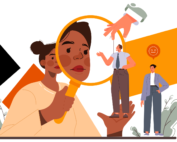On 27th June 2019 the Lionesses (the England Ladies Football Team) beat Norway 3-0. There were 20,000 people in the stadium and the game was watched by 1 billion people across the world. Before the match started the players lined up behind a banner that said, ‘Living Diversity’. What a fantastic sight to see.
Many men and women from previous generations fought the battle against exclusion for years to enable events such as the Women’s Football World Cup football to be played and transmitted to the rooms of billions of people worldwide. I personally think that this is a fantastic achievement and very fitting as proof of progress in valuing diversity, as we honour the 50th Anniversary of Stonewall.
I am proud that I was part of the generation that paved the way for the diversity we see in the world today. Long ago in the 1980s I did a Physical Education degree at Loughborough University. During my time there I played ladies rugby with a group of women who went on to establish the foundations of ladies rugby in the UK. Many played for England and Wales, but they fought the battle to get there. They were amateurs, they spent their spare time working behind the club bars in the evenings to ‘earn’ the honour to play on the men’s club pitch. They worked hard, they trained hard and their legacy can be seen in how women’s rugby is flourishing today throughout the country.
After Loughborough, I saw an advertisement that encouraged women to join the Army. It looked like a great career, so I signed up. During my training I witnessed strong prejudice against the LGBT soldiers serving in the Army. They were hunted out, humiliated and thrown out if ‘discovered’. Many were brave and often put their lives on the line, however they were not allowed to be open and free and be who they were – even through their country needed them to serve and protect our country’s freedom.
Learning from history
An important part of your education in the Army is to study history and learn to appreciate and value the characteristics of great leaders. I studied many leaders who were my role models because of what they did (not who they were). I saw one side of them only, the side the education system chose to show me and make me focus on. Many of these amazing men, Alan Turing, for example, and women had to hide who they were, adding, no doubt, to the great strain they were under already on both a professional and personal level. Sadly, they often couldn’t deal with this stress and it contributed to their early death.
Those days are now gone, the British Army openly embraces diversity and is a leading example of an employer that has decided to embrace diversity and create a climate of inclusion. Young people joining today are more aware of their prejudice and biases, they are open, they embrace difference and the workplace is a much better place for this climate of openness and trust.
More people can now serve their country and be who they are in the process. People can earn medals and be knighted and still be gay. I grew up in the troubles of Northern Ireland and thought that would never end. I served in the British Army and thought people would never be able to be out and serve. Change and progress does happen, but only because leaders and employees embrace it, value difference and create a climate of inclusion to allow people to be themselves at work.
Since leaving the Army, I have worked in several technical companies small and large. I have witnessed and known several people who have been afraid to be open about their differences – whether this be that they are LGBT+, dyslexic, Asperger’s, or just different because they come from a minority community or differ in the way they think. They feel that they should hide this aspect of themselves because they fear judgement.
When I see this, I think it is a huge loss to the company and creates unnecessary stress. Leaders are the key to changing such work climates. People follow leaders, leaders are role models, leaders set the tone for the workplace and create the climate their teams work in. If a climate is toxic or exclusive, people will not be at their best. Problems will go unsolved because whole aspects of people’s capability are not brought to the table.
So, what does ‘good’ look like? To tell you this, I will return to the Lionesses. To start with, the team itself is full of women who respect each other, they support each other and they are role models to a world of young women out there who now want to follow in their footsteps. How inspiring is that!
Then there is the Team’s Captain, Steph Houghton. During the match against Norway, she led by example and on many occasions saved the team at the last minute – she was there for them and encouraged them to be bold and perform to their best. Finally, there’s the team: Manager Phil Neville. My mother once told me, you dress well not to impress, but to show respect to the people around you and the situation. Phil Neville is always smart in appearance and this raises the level of the teams self-respect. He is proactive in his language; he speaks positively about all his players. He is a calming influence from the sideline. He consults his full squad of coaches and takes their advice. He builds trust, respects diversity, is fully inclusive and forgets no one. He spends time with those who do not get in the limelight. Like a great coach before him – Clive Woodward – he is a great leader because he inspires his followers. Above all he #livesdiversity – something we should all aspire to do.
This blog is written by Lucy Finney, MBE from Underscore Group in honour of the 50th Anniversary of Stonewall.
Read Next
Soft Skills: Why Being a Control Freak is Hurting Your Project Management Success
Are you a project manager who feels the need to be in control of every aspect of your project? While being detail-oriented and organised can be beneficial, it's important to recognise when your inner [...]
Creative Problem Solving
What do pink poodles, scented pens, blindfolds, bouncy balls and visual cards all have in common? They are all tools that, amongst others, we use within Underscore to help our delegates understand and develop [...]
The DNA of SMART Working
Out and about at work and in my workshops, one of the topics that comes up regularly is smart working. Nearly every company large or small is facing this challenge today. Businesses are facing [...]
Cracking the Code of High Performing Teams
Teams fascinate me. We are all part of a team in some form or another. In his book ‘The One Minute Manager Builds High Performing Teams’ Ken Blanchard states that ’50 to 90% of [...]
Team Coaching – the key to unlocking Team Effectiveness
Whatever you do, odds are you work in some sort of team, and how your team perform will make the difference between success and failure in your endeavours. But when we all have our [...]
Mental Health and Emotional Flexibility
In the past I have taken part in a wide variety of activities to raise awareness of the importance of Mental Health in the workplace, activities such as ‘Chimp Management’, resilience (learn about your [...]






